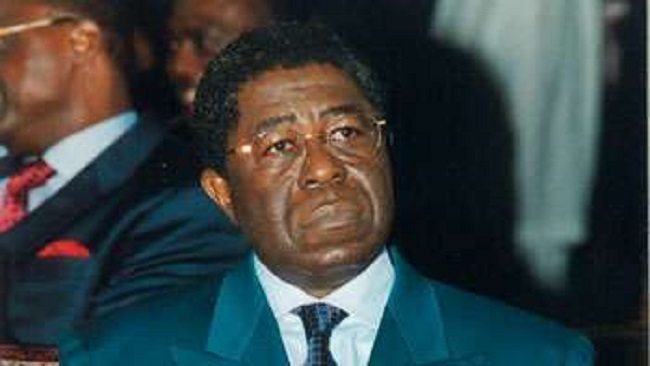Bamenda: Ambazonians want terror law repeal and amnesty to end violence
English speakers in the Northwest of Cameroon want an anti-terrorism law repealed and a general amnesty to help end the armed separatist campaign, a government commission said Wednesday.
Among the demands are a debate on introducing a federal system to the West African country which is dominated by French-speakers.
The proposals come from more than 800 people representing a cross-section of society in Bamenda, capital of the Northwest anglophone region.
The commission, set up by President Paul Biya, said in a statement it had consulted traditional, religious, administrative and political figures as well as a “sample representing the population”.
Biya, who has been in power for 35 years, has long rejected demands for greater autonomy.
Resentment festered from perceived marginalisation in education, the judiciary and the economy at the hands of the French-speaking majority
But tasked with listening to the local population, the commission to promote bilingualism and a multi-party structure said it had drawn up a list of 18 proposals from English speakers to end the crisis.
Since trouble broke out in 2016, the government has refused to open a debate on the make up of the State.
However, while some English speakers want a federal system, the more radical seek a separate anglophone country.
Almost all those arrested are held under 2014 anti-terrorism legislation which includes capital punishment.
The proposals call for “clarification of the terms ‘terrorists’ and ‘separatists'”, that are used against many anglophones.
The amnesty should cover those who have been forced into exile as well as those arrested.
— Corruption, tribalism, nepotism —
English speakers say they feel “unloved by the French-speaking brothers” who maintain “a superiority complex”, the commission notes.
The proposals also detail grievances over youth unemployment, corruption, tribalism, nepotism and the “total absence of industry” in the Northwest.
The authorities are accused of “arrogance in the management of the crisis”.
The crisis escalated last October after the declaration of the self-described “Republic of Ambazonia” in the Northwest and Southwest Regions, causing scores of deaths and prompting tens of thousands to flee their homes.
Human-rights watchdogs point to a range of abuses, including abductions and targeted killings.
The linguistic divide dates back to colonial times. Cameroon was once a German colony and was split between Britain and France after World War I.
In 1960, the French part gained independence and the following year, British-ruled Southern Cameroons was amalgamated into the new Cameroon, becoming the Northwest and Southwest regions.
According to the International Crisis Group think-tank, at least 120 civilians and 43 security forces have been killed since the end of 2016.
The UN says 160,000 people have been internally displaced and 20,000 sought refuge in neighbouring Nigeria.
Source: Pulse.ng







07/06/2018 @ 13:00
CIR using Pulse.ng as a source is a big joke. That is not what took place.
07/06/2018 @ 13:36
They reported the story not us